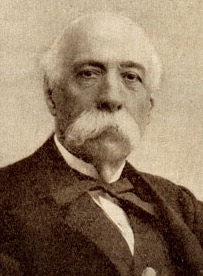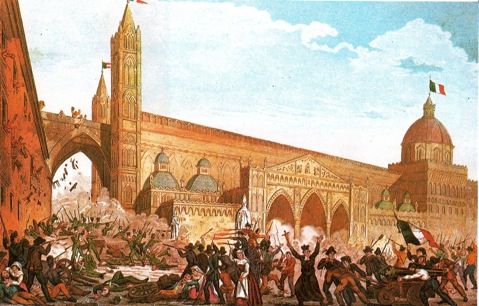|
Avanti! (Italian Newspaper)
''Avanti!'' (; ) is an Italian daily newspaper, born as the official voice of the Italian Socialist Party, published since 25 December 1896. It took its name from its German counterpart , the newspaper of the Social Democratic Party of Germany. History Foundation In the mid-1890s, the Italian Socialist Party owned numerous newspapers and periodical journals published in various parts of the Italian Kingdom, but those had limited runs, and they were funded by the same militants of the Party. However, PSI (the Italian-language abbreviation of the Italian Socialist Party) obtained an important standing in the elections of 1895, and during the IVth Socialist Congress of Florence in July 1896, programs for the editorial development were promoted along with the origination of a nationwide newspaper. The first number of ''Avanti!'' was published on 25 December 1896, on Christmas, because the new newspaper sought to represent Italian socialism as intended as "a new voice that does no ... [...More Info...] [...Related Items...] OR: [Wikipedia] [Google] [Baidu] |
Newspaper
A newspaper is a Periodical literature, periodical publication containing written News, information about current events and is often typed in black ink with a white or gray background. Newspapers can cover a wide variety of fields such as politics, business, sports, art, and science. They often include materials such as opinion columns, weather forecasts, reviews of local services, Obituary, obituaries, birth notices, crosswords, editorial cartoons, comic strips, and advice columns. Most newspapers are businesses, and they pay their expenses with a mixture of Subscription business model, subscription revenue, Newsagent's shop, newsstand sales, and advertising revenue. The journalism organizations that publish newspapers are themselves often Metonymy, metonymically called newspapers. Newspapers have traditionally been published Printing, in print (usually on cheap, low-grade paper called newsprint). However, today most newspapers are also Electronic publishing, published on webs ... [...More Info...] [...Related Items...] OR: [Wikipedia] [Google] [Baidu] |
Andrea Costa
Andrea Costa (29 November 1851 – 19 January 1910) was an Italian socialist politician. Among the founders of the Italian socialist movement, he was the first socialist deputy in Italian history. Biography Andrea Costa was born on 29 November 1851, in the Romagnol city of Imola, into a poor Catholic family. In 1870, he graduated from secondary school and moved to the regional capital of Bologna, where he worked as a clerk to pay for his education at the University of Bologna. Anarchist activism During his years as a student, he joined the International Workingmen's Association (IWA), became a follower of the Russian anarchist Mikhail Bakunin and adopted the philosophy of revolutionary socialism. In August 1872, Costa presided over an Italian Congress of the IWA in Rimini, where delegates voted to split from the Marxists and affiliate themselves with the Anti-authoritarian International. Later that year, Costa attended the St. Imier Congress as an Italian delegate. During th ... [...More Info...] [...Related Items...] OR: [Wikipedia] [Google] [Baidu] |
Rosario Garibaldi Bosco
Rosario Garibaldi Bosco (Palermo, July 28, 1866 – Turin, December 2, 1936) was an Italian Republican-inspired socialist, politician and writer from Sicily. He was one of the leaders of the ''Fasci Siciliani'' (Sicilian Leagues), a popular movement of democratic and socialist inspiration in 1891-1894. Early life Born in Palermo, the son of Nicola and Teresa Patorno, he graduated in accountancy in 1886. He married Concetta Seminara and became a political activist in radical and socialist circles inspired by Napoleone Colajanni, known as the father of Sicilian socialism.Bosco, Rosario Garibaldi Dizionario Biografico degli Italiani - Volume 13 (1971) [...More Info...] [...Related Items...] OR: [Wikipedia] [Google] [Baidu] |
Giuseppe De Felice Giuffrida
Giuseppe De Felice Giuffrida (11 April 1859 in Catania – 19 July 1920 in Aci Castello) was an Italian socialist politician and journalist from Sicily. He is considered to be one of the founders of the ''Fasci Siciliani'' (Sicilian Leagues) a popular movement of democratic and socialist inspiration. As the first socialist mayor of Catania in Sicily, from 1902 until 1914, he became the protagonist of a kind of municipal socialism. Early life Born in a humble family in Catania, he spent his childhood years in a children’s home. His father had been killed in 1868 by the Carabinieri during a robbery, while his mother, according to a report by the authorities, "lived in immorality." Released from the home, he found employment as an archivist clerk in the prefecture in 1878.De Felice Gi ... [...More Info...] [...Related Items...] OR: [Wikipedia] [Google] [Baidu] |
Summary Execution
In civil and military jurisprudence, summary execution is the putting to death of a person accused of a crime without the benefit of a free and fair trial. The term results from the legal concept of summary justice to punish a summary offense, as in the case of a drumhead court-martial, but the term usually denotes the ''summary execution'' of a sentence of death. Under international law, it is defined as a combatant's refusal to accept an opponent's lawful surrender and the combatant's provision of no quarter, by killing the surrendering opponents. Summary executions have been practiced by police, military, and paramilitary organizations and are frequently associated with guerrilla warfare, counter-insurgency, terrorism, and any other situation which involves a breakdown of the normal procedures for handling accused prisoners, civilian or military. Military jurisdiction Under military law, summary execution is illegal in almost all circumstances, as a military tribunal would ... [...More Info...] [...Related Items...] OR: [Wikipedia] [Google] [Baidu] |
Roberto Morra Di Lavriano E Della Montà
Roberto is an Italian, Portuguese and Spanish variation of the male given name Robert. Notable people named Roberto include: * Roberto (footballer, born 1912) * Roberto (footballer, born 1977) * Roberto (footballer, born 1978) * Roberto (footballer, born 1979) * Roberto (footballer, born 1988) * Roberto (footballer, born January 1990) * Roberto (footballer, born December 1990) * Roberto (footballer, born 1998) * Roberto Abbondanzieri (born 1972), Argentine footballer * Roberto Acuña (born 1972), Paraguayan footballer * Roberto Alagna (born 1963), French operatic tenor * Roberto Alomar (born 1968), Puerto Rican baseball player * Roberto Alvarado (born 1998), Mexican footballer * Roberto Amadio (born 1963), Italian cyclist * Roberto d'Amico (born 1967), Belgian politician * Roberto Ayala (born 1973), Argentine footballer * Roberto Badiani (born 1949), Italian footballer * Roberto Baggio (born 1967), Italian footballer * Roberto Ballini (born 1944), Italian footballer * Roberto ... [...More Info...] [...Related Items...] OR: [Wikipedia] [Google] [Baidu] |
Fasci Siciliani
The Fasci Siciliani (), short for Fasci Siciliani dei Lavoratori ('Sicilian Workers Leagues'), were a popular movement of Democracy, democratic and socialist inspiration that arose in Sicily in the years between 1889 and 1894. The Fasci gained the support of the poorest and most exploited classes of the island by channeling their frustration and discontent into a coherent programme based on the establishment of new rights. Consisting of a jumble of traditionalist sentiment, religiosity, and socialist consciousness, the movement reached its apex in the summer of 1893, when new conditions were presented to the landowners and mine owners of Sicily concerning the renewal of sharecropping and rental contracts. Upon the rejection of these conditions, there was an outburst of Strike action, strikes that rapidly spread throughout the island, and was marked by violent social conflict, almost rising to the point of insurrection. The leaders of the movement were not able to keep the situat ... [...More Info...] [...Related Items...] OR: [Wikipedia] [Google] [Baidu] |
Crispi IV Cabinet
The Crispi IV government of Italy held office from 14 June 1894 until 10 March 1896, a total of 635 days, or 1 year, 8 months and 25 days. Government parties The government was composed by the following parties: Composition References {{Governments of the Kingdom of Italy Crispi 4 1894 establishments in Italy ... [...More Info...] [...Related Items...] OR: [Wikipedia] [Google] [Baidu] |
Crispi III Cabinet
The Crispi III government of Italy held office from 15 December 1893 until 14 June 1894, a total of 181 days, or 5 months and 30 days. Government parties The government was composed by the following parties: Composition References {{Governments of the Kingdom of Italy Crispi 3 1893 establishments in Italy ... [...More Info...] [...Related Items...] OR: [Wikipedia] [Google] [Baidu] |
Francesco Crispi
Francesco Crispi (4 October 1818 – 11 August 1901) was an Italian patriot and statesman. He was among the main protagonists of the Risorgimento, a close friend and supporter of Giuseppe Mazzini and Giuseppe Garibaldi, and one of the architects of Italian unification in 1860.Nation-building in 19th-century Italy: the case of Francesco Crispi Christopher Duggan, History Today, 1 February 2002 Crispi served as for six years, from 1887 to 1891, and again from 1893 to 1896, and was the first prime minister from |
Antonio Starabba, Marchese Di Rudinì
Antonio Starrabba (or Starabba), Marquess of Rudinì (16 April 18397 August 1908) was an Italian statesman, Prime Minister of Italy between 1891 and 1892 and from 1896 until 1898. Biography Early life and patriotic activities He was born in Palermo (then part of the Kingdom of the Two Sicilies) into an aristocratic Sicilian family.Sarti, ''Italy: a reference guide from the Renaissance to the present''pp. 534-35/ref> However, his family was of a more cultured, liberal disposition than many of their contemporaries. In 1859, he joined the revolutionary committee which paved the way for Garibaldi's triumphs in the following year. After spending a short time in Turin as attaché to the Italian foreign office, he was elected mayor of Palermo. In 1866, he displayed considerable personal courage and energy in quelling an insurrection of separatist and reactionary tendencies. The prestige thus acquired led to his appointment as prefect of Palermo. It was while occupying that position ... [...More Info...] [...Related Items...] OR: [Wikipedia] [Google] [Baidu] |
Italian Minister Of The Interior
The minister of the interior (Italian: ''ministro dell'interno'') in Italy is one of the most important positions in the Council of Ministers (Italy), Italian Council of Ministers and leads the Ministry of the Interior (Italy), Ministry of the Interior. The current minister is prefect Matteo Piantedosi, appointed on 22 October 22 in the Meloni Cabinet. The minister of the interior is responsible for internal security and the protection of the constitutional order, for civil protection against disasters and terrorism, for displaced persons and administrative questions. It is host to the Standing Committee of Interior Ministers and also drafts all passport, identity card, firearms, and explosives legislation. The interior minister is political head for the administration of internal affairs. They control the Italian police, State police, the Vigili del Fuoco, and the prefects. The minister therefore sits on the High Council of Defence (Italy), High Council of Defence. List of I ... [...More Info...] [...Related Items...] OR: [Wikipedia] [Google] [Baidu] |





